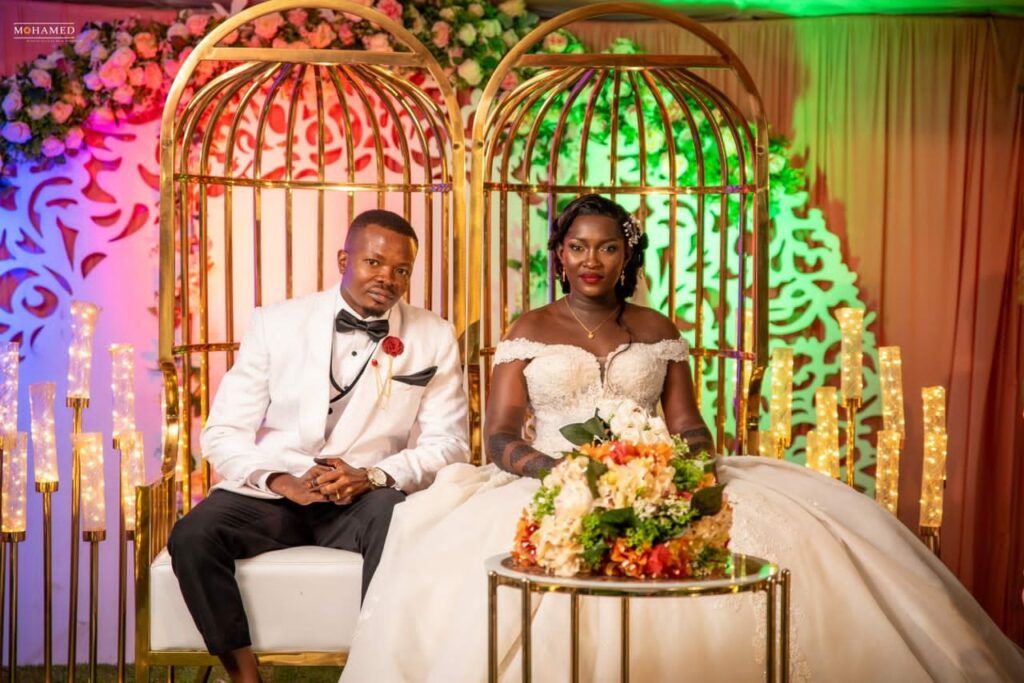
Bride and groom under decorated set during their wedding reception
South Sudanese also partake in the institution of marriage similar to communities all over Africa. Marriage is considered a sacred union established by God, with the purpose of procreation and the expansion of clan networks. Among the South Sudanese, marriage holds immense significance and is often influenced by factors such as ethnicity, tribe, religion, socioeconomic background, and occupation. Unlike the past, where marriages were solely arranged by families, modern South Sudanese marriages can be either based on love or arranged.
TRADITIONAL MARRIAGE PRACTICES IN SOUTH SUDAN
The South Sudanese community places a strong emphasis on cultural traditions, valuing them even more than religious practices. This vibrant community comprises sixty-four tribes, many of which share common cultural traits and have intelligible languages. Traditionally, South Sudanese men were allowed to have multiple wives, practicing polygamy as long as they could afford to pay the bride price.
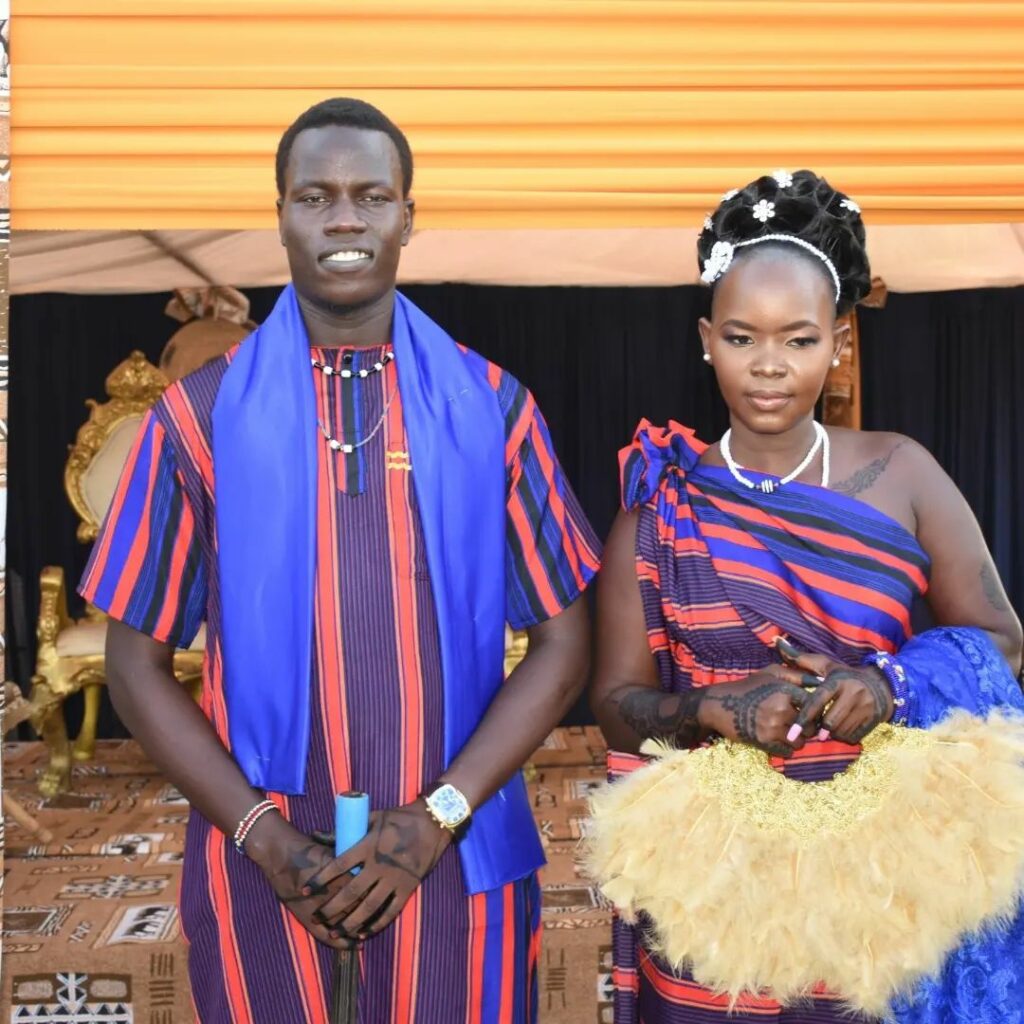
Bride and Groom dressed in traditional Mundari tribe attire from South Sudan
In addition, South Sudanese also engage in ghost marriages, a unique practice where a deceased groom is replaced by his brother. The brother of the deceased assumes the responsibility of fulfilling the marital duties on behalf of his late sibling, including procreation. Children born in these unions are named after the deceased brother to carry on his lineage. However, it’s important to note that this practice is limited to the Dinka, Nuer, and Atuot communities.
MARRIAGE PROCESS IN SOUTH SUDAN
Love Marriage
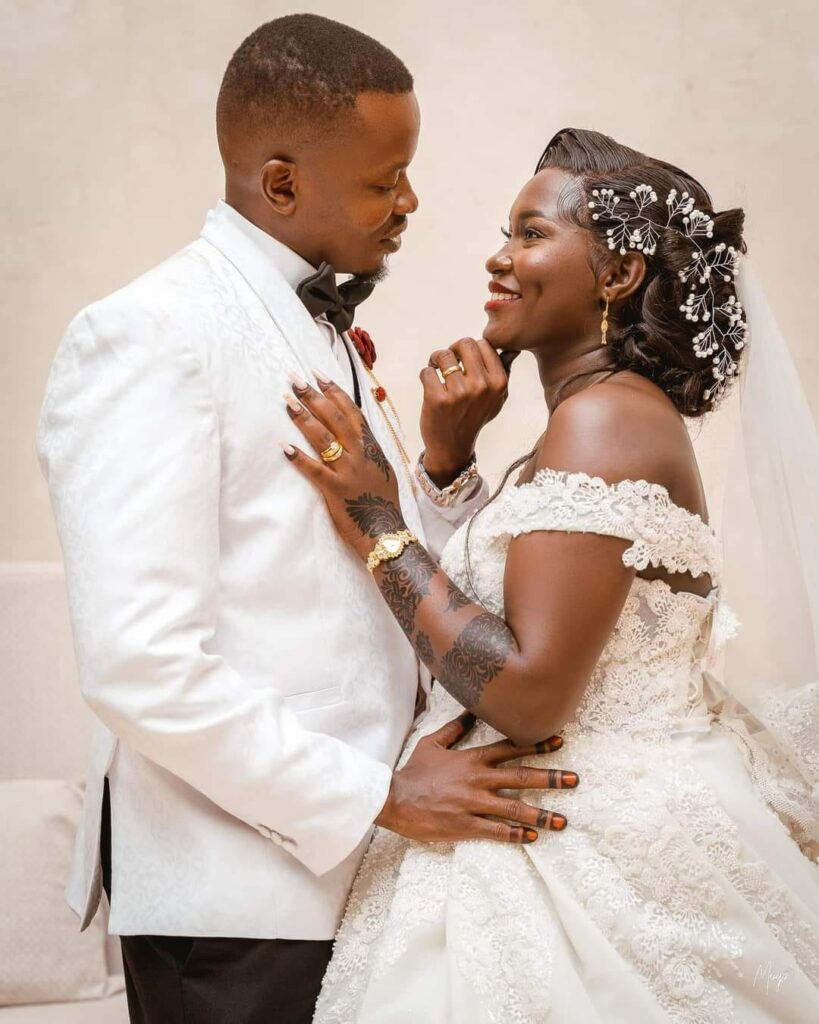
Bride and Groom at their White Wedding
In a love marriage, after a period of courtship, the man takes the initiative to propose to the woman. Once she accepts, the next steps can be taken. The man then delves into the cultural practices of the woman and familiarizes himself with the marriage procedures. Following this, he writes a letter to the woman’s family expressing his interest in marrying her. The woman’s family responds with a letter outlining the marital requirements. The man then mobilizes resources with the support of his own family and visits the woman’s family to pay the bride price. Negotiations take place, leading to an agreement between the two families. The agreed-upon items are presented to the woman’s family. Ceremonies proceed to hand the woman to the man’s family in accordance with the women’s cultural customs. Finally, the woman is escorted to her new family home. Mike Classic Event’s is one of many wedding organizers in Juba that creates elaborate traditional sets and decor for the traditional wedding.
Arranged Marriage
In an arranged marriage scenario, a man who feels ready for marriage visits the family of the woman he is interested in to express his intentions. Conversely, the woman’s family may also seek a suitable man for their daughter. Such marriages are often influenced by a man’s resources and social status. In some cases, a woman may have multiple suitors, and the one with greater resources and social standing ultimately wins her hand. An example of this can be seen in the marriage of Nyalong Deng, a 17-year-old girl from Awerial, South Sudan, who gained fame on social media for her remarkable height of 7ft. Her family sought suitable suitors, with three wealthy men showing interest. The man who married her offered a dowry of 500 cows and 3 Toyota V8s. The woman then becomes the man’s wife. Such arrangements are common among the Dinka and Nuer communities.
Bride Price or Dowry
Bride price, also known as bride dowry, refers to the wealth, property, or monetary value paid by the groom or his family to the woman he intends to marry or is about to marry. While some may view this as purchasing a woman, Africans consider it a way of valuing women’s contributions and appreciating the efforts made by the bride’s family in raising her. The payment of bride price is also a means of securing the husband’s group’s rights over the children of the marriage.
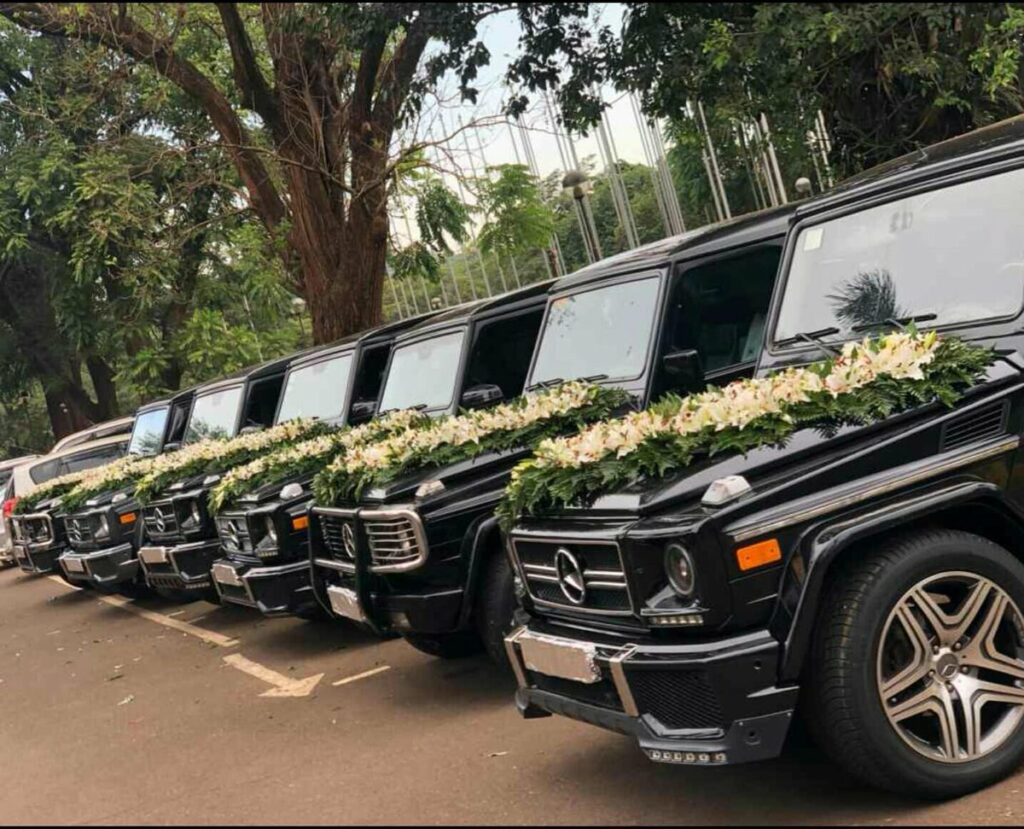
Procession Vehicles decorated in a South Sudanese high-profile wedding
The specific items comprising the bride price in South Sudan vary based on the bride’s tribe and culture. Common bride price items include animals such as cows, goats, sheep, and donkeys, as well as food items. However, in contemporary times, the bride price has become increasingly inflated. Compared to traditional practices, people now triple the original bride price. Present-day bride price items may include animals, food items, drinks, luxury cars, land, and money, among other things. This trend has led many men to strive tirelessly to impress the bride’s family with their financial means. On the other hand, it has also resulted in women marrying men they may not love, solely because the men they desired couldn’t afford the exorbitant bride price set by the bride’s family. A recent article by Mark A. W. Deng titled “Bride Price in Patriachal South Sudanese Society, A Legal Perspective” highlights the societal and legal aspects of bride price. Mr. Deng’s abstract states “Two such problems, indeed, the most serious of all, are: (i) bride price objectifies and commodifies women, and this lowers women’s status in society; and (ii) bride price violates a woman’s freedom to choose who to marry as all but young girls, that is, those under the age of 18, are forced into marriage by their families for bride-wealth. Young girls who dare to resist can be tortured severely, or even put to death.
DOWRY AND IMPLICATIONS OF CHILD MARRIAGES IN SOUTH SUDAN
The practice of exorbitant bride prices in South Sudan has had detrimental consequences, particularly regarding child marriages. Poverty-stricken families often marry off their underage daughters to older men who can offer the highest dowry. Tragically, these young girls have no say in the matter and are forced to abandon their education. Furthermore, they face the challenges of early childbirth, endangering their health and well-being. Women’s rights groups are tirelessly working to address this issue and raise awareness of the injustice faced by child brides.
One notable organization making strides in combating child marriages is Catwalk to Freedom with their slogan: “Ana Jena ma Arusa” campaign, which translates to “I am a child, not a bride.” Their efforts revolve around educating the public about the detrimental impact of child marriages and providing training and support to at-risk girls in schools. To raise funds for their cause, Catwalk to Freedom, designs and sells fashionable outfits. In a symbolic gesture, these outfits are modeled by the girls they aim to support.
An evocative photo captures the essence of the issue at hand. In the image, a young lady stands amidst a group of cows, with their number increasing until she is no longer towering over them. This poignant visual conveys a significant message: taller girls command higher dowries, as height is considered a desirable trait among certain Nilotic tribes in South Sudan. Additionally, the presence of white cows holds symbolic meaning, as they are highly valued possessions and command higher prices in the market. Families with a wealthier daughter, who meets the desired beauty standards (tall, white teeth, family status, education), often demand a substantial number of white cows as part of the bride price.

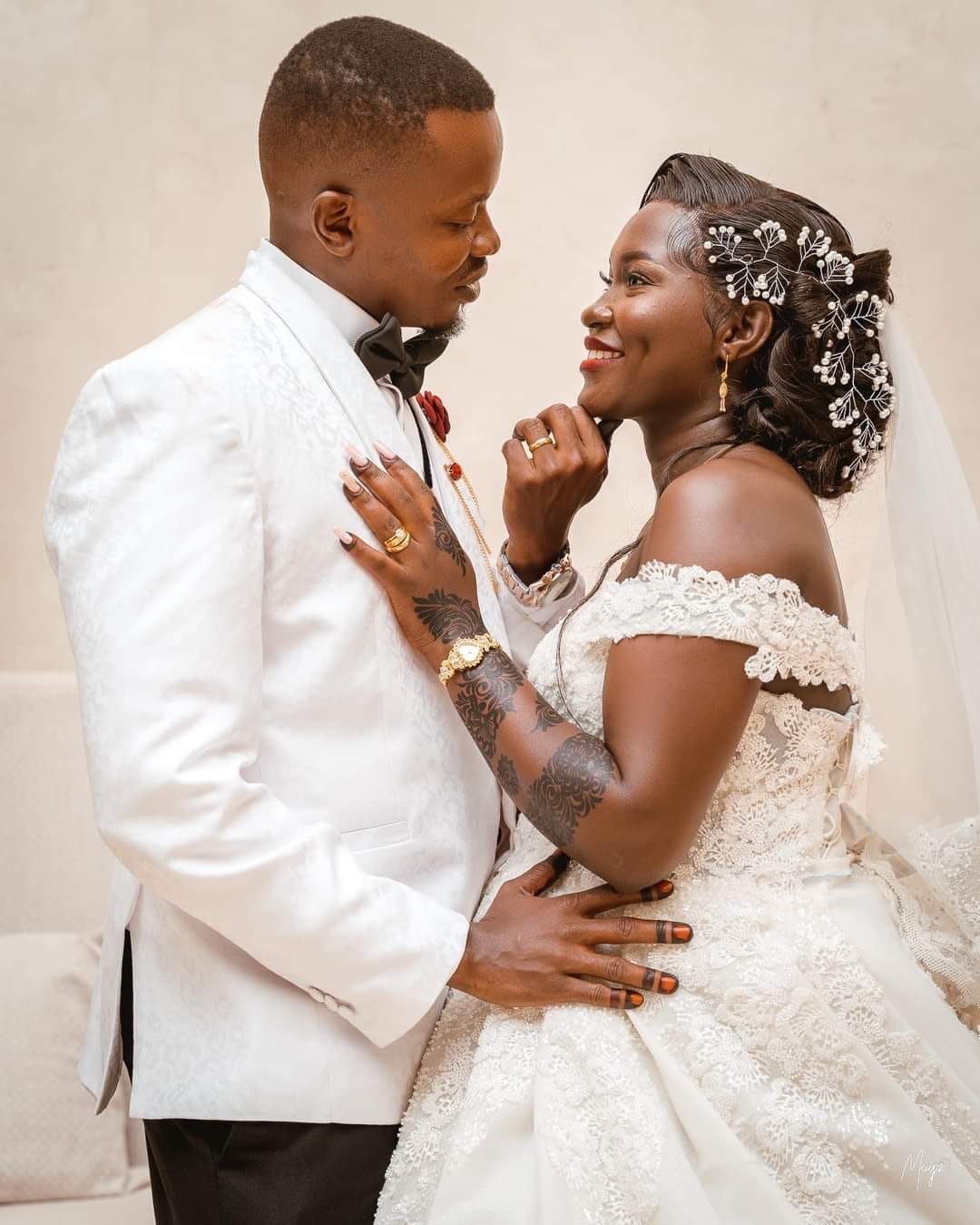

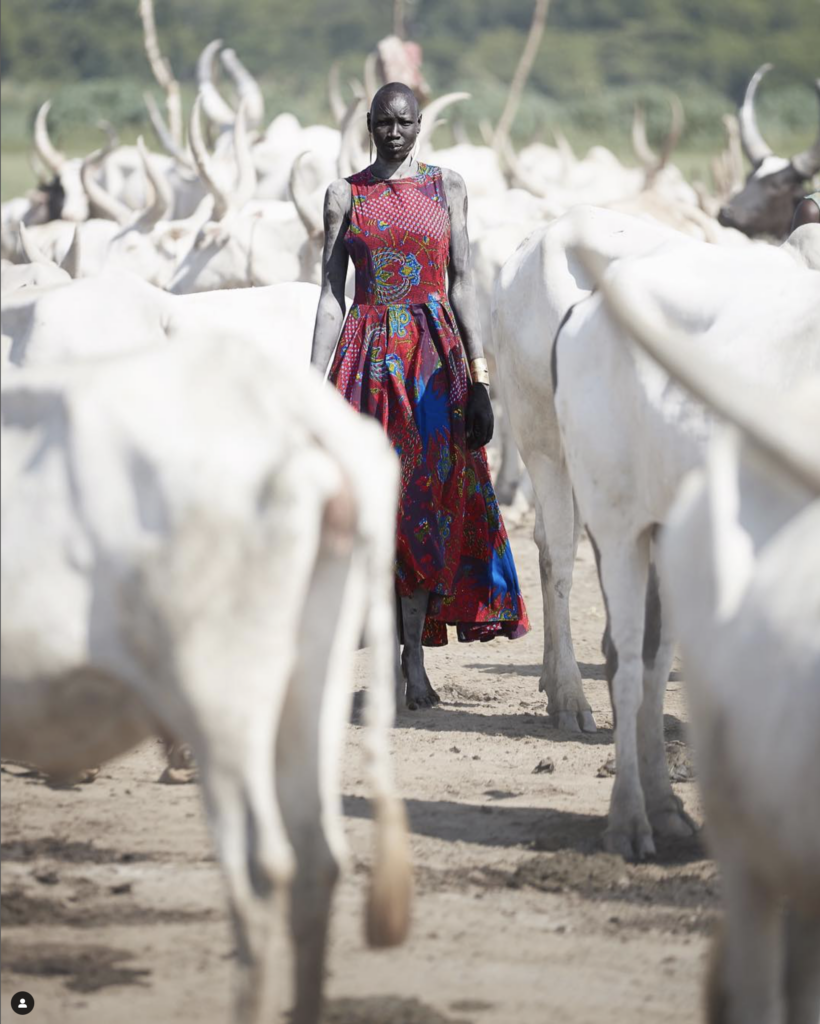
0 Comments